
Group seek for an end to insurgent activities in the country .
 By Bukola Afeni
The executive director of CITAD Mallam Ya’u said a large number of boko haram members are initiated due to poverty and socioeconomic factors in the country .
The executive director gave the indication at a public presentation of a book on community resilience on Boko haram in Abuja Mallam Ya’u is also urging communities to access information on what can be done to remain security conscious in the environment where they reside.
“It is not only about bringing arms and ammunitions around the community ,but by maintaining security â€
“Communities need to come together to protect itself from unnecessary violence acts in the societyâ€
“Violence provides a framework of operation ,and we need to research and find out the modalities behind the insurgent activities “he noted.
The executive director is therefore urging all Nigerians to be united in eliminating the boko haram activities in the country .
“When the people are unified in fighting insurgent activities,the country can make progress in terms of security “he added.
He also disclosed that the government should seek for means of eliminating poverty from the country ,by creating employment opportunities to the teeming youth .
According to Mallam Yau when Boko haram first gained prominence in the country ,some of the members attested to the fact that they were initiated into the group, because it will provide a means of livelihood for them.
“While some joined the group because they don’t have vision in life ,and lost hope of excelling in lifeâ€he noted.
In the same vein ,the executive director noted that Borno state is the centre of movement in the North east ,and hence become the centre of Boko haram in the country ..
Speaking further ,the lead researcher ,professor Jibrin Ibrahim said there is an urgent need for community and religious leaders to engage in advocacy to bring people together in fighting insurgency in the country.
According to Professor Jibrin ,the boko haram ideology has created a radical extremism that infiltrates the religious movement.
While noting that the religion that is meant for peace and tranquility has resulted in violent religion .
He further noted that the group has developed an ideological framework to work with religious leaders who understand the people in different communities. “The society is meant to have an alarm bell that identifies deviants in the society ,and put an end to the activities ,no matter the statistics “he added.
Professor Jibrin stressed that the core problem with public education is that the standard has fallen drastically .
“The level of graduates we have now is not encouraging ,majority of the graduates are illiterates â€
The declining quality of education is more important ,and there should be an urgent need to address it .
Reacting to the high number of almajiris in the North east,he said there has been a fundamental transformation of religious activities into activism in the country .
“The religious activities had made some of the youth to engage in beliefs that is inimical to the growth of the country â€
“The youth need to reconnect from.some of the erroneous beliefs for the communities to move forward “he added.
The director MacArthur foundation ,Dr kole Shettima said there has been an indictment on the education system because people have lost confidence in it .
“We are perpetrating a lot of inequality in the society ,the wide between the rich and the poor is so wide â€
“The elite do not send their children and wards to the public school facilities .
Citing Lagos state as an example ,he said the state has fewer public schools ,compared to the North which has a large number of public facilities .
In addressing the issue of insurgency ,extreme inequality is one of the triggers ,which has to be nipped in the bud .
Government should provide skilled jobs that youths can venture into,and serve as source of empowerment.
There is an urgent need to criminalise hate speech ,and preachers that practice such should be severely dealt with .


 Professor Jibrin Ibrahim who spoke last but who offered the most elaborate clarification said a lot of social and political factors come into play when we talk about religion and violence broadly, adding that what is most crucial in the case of Nigeria is that both Islam and Christianity have been undergoing internal transformation since the mid 1970s.
Professor Jibrin Ibrahim who spoke last but who offered the most elaborate clarification said a lot of social and political factors come into play when we talk about religion and violence broadly, adding that what is most crucial in the case of Nigeria is that both Islam and Christianity have been undergoing internal transformation since the mid 1970s. In his comment on the question, Mallam Y Z Y’au, Executive Director of the Centre for Information Technology and Development, (CITAD), the publishers of the book said the matter should be seen from the point that violence would always find a framework and the framework could be religion. But that, he said, does not mean that the religion which provides violence a framework is violent. He recalled a study by the United States Institute of Peace on why those who joined Boko Haram did so. The result showed that over 70 % of those who joined did so in terms of socio-economic reasons.
In his comment on the question, Mallam Y Z Y’au, Executive Director of the Centre for Information Technology and Development, (CITAD), the publishers of the book said the matter should be seen from the point that violence would always find a framework and the framework could be religion. But that, he said, does not mean that the religion which provides violence a framework is violent. He recalled a study by the United States Institute of Peace on why those who joined Boko Haram did so. The result showed that over 70 % of those who joined did so in terms of socio-economic reasons.
 The categorical nature of his intervention as reported by the News Agency of Nigeria, (NAN) speaks to the factionalisation Professor Ibrahim talked about in the case of Christianity. In the case of Islam, there might exist no better account than the documentation in Where I Stand, the joint autobiography of the late Sheikh Abubakar Gumi with Professor Ismaila Tsiga, published by Spectrum Books in 1992. Chapter Eleven of the book has been interpreted by some as a prediction of Boko Haram.
The categorical nature of his intervention as reported by the News Agency of Nigeria, (NAN) speaks to the factionalisation Professor Ibrahim talked about in the case of Christianity. In the case of Islam, there might exist no better account than the documentation in Where I Stand, the joint autobiography of the late Sheikh Abubakar Gumi with Professor Ismaila Tsiga, published by Spectrum Books in 1992. Chapter Eleven of the book has been interpreted by some as a prediction of Boko Haram.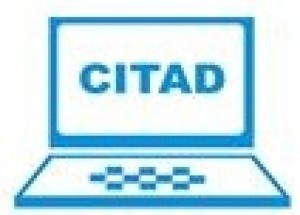

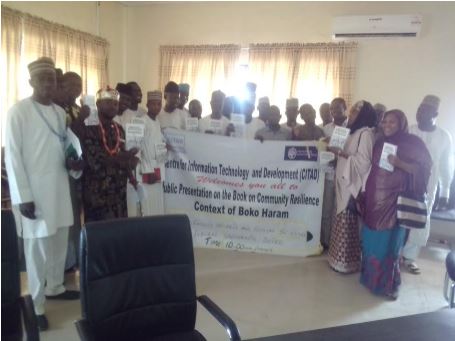
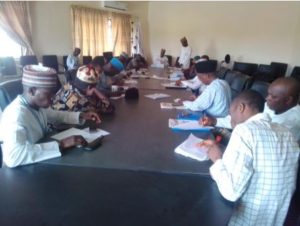
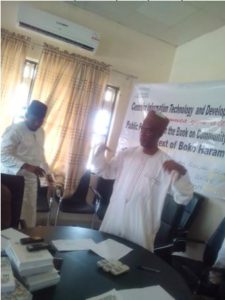

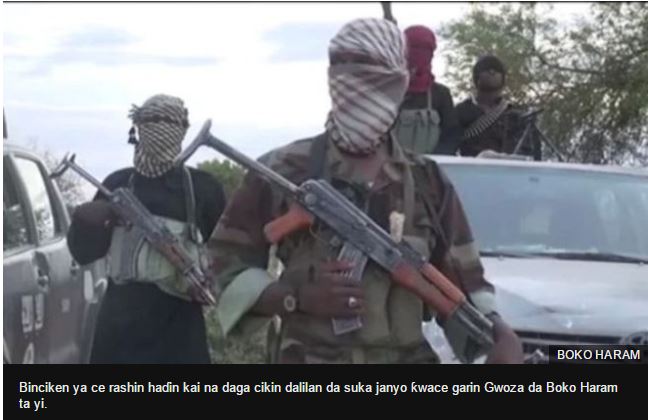
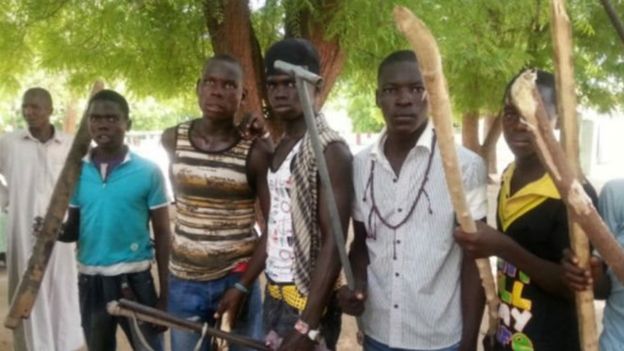


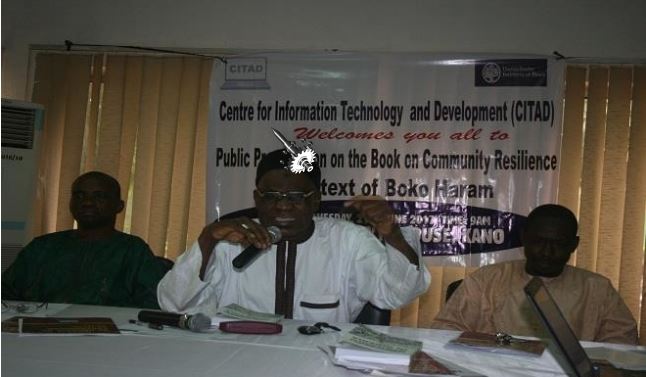

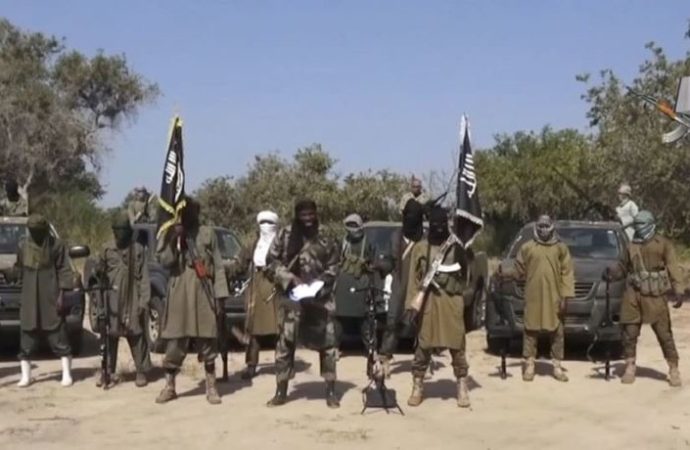
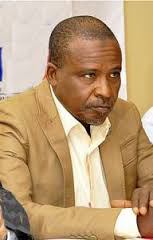

 Mrs Mary Iduma, a former NCC Director and now the Chairperson of the Nigeria as well as West African Internet Governance Forum took her turn to present the second background paper. Hers was on the Internet Governance Forum as a layer in the governance ensemble around the internet. It is a policy dialogue platform for stakeholders, she said, meaning that they do not deal with treaties. Instead of dabbling into hard or soft legalisation, they jaw-jaw around thematic areas of trade and every other economic activities that define the internet economy; the management of critical internet resources; inclusiveness – dealing with women, disabled, the aged and new language such as digital natives, digital migrants, etc; diversity; enhancing multi-stakeholder communities – from academics to business to civil society; cyber – security; internet eco-system and, lastly, emerging issues such as big data.
Mrs Mary Iduma, a former NCC Director and now the Chairperson of the Nigeria as well as West African Internet Governance Forum took her turn to present the second background paper. Hers was on the Internet Governance Forum as a layer in the governance ensemble around the internet. It is a policy dialogue platform for stakeholders, she said, meaning that they do not deal with treaties. Instead of dabbling into hard or soft legalisation, they jaw-jaw around thematic areas of trade and every other economic activities that define the internet economy; the management of critical internet resources; inclusiveness – dealing with women, disabled, the aged and new language such as digital natives, digital migrants, etc; diversity; enhancing multi-stakeholder communities – from academics to business to civil society; cyber – security; internet eco-system and, lastly, emerging issues such as big data.